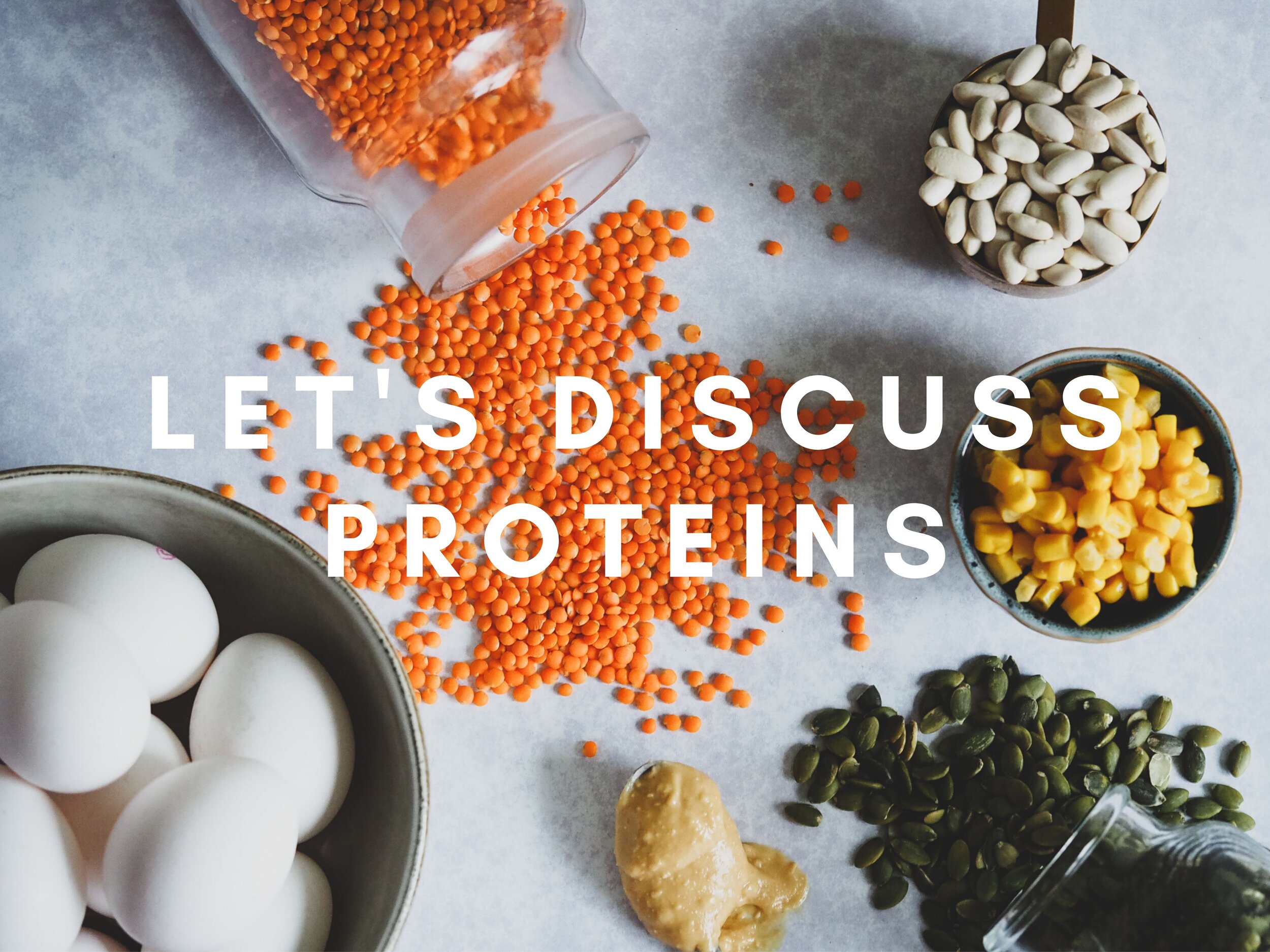Let’s discuss the protein obsession and if you can get enough protein from veg. sources
Proteins, proteins, proteins. A never ending discussion if you ask me, so today we’re going to discuss it all. Or maybe not all, because proteins IS a very complex topic and there are millions things to say about it, but we are going to discuss the basics, the most important parts and why it is such a big protein obsession! Since I am vegetarian and almost only eat vegan food, it is also important to discuss proteins in a “veg aspect” though, because one of the most common questions I get is “how do I eat enough proteins as a vegan/ vegetarian?”. It’s a very good question and I’m going to give you concrete answers to it all! Follow along!
How much protein do you need to eat?
Many people tend to think that vegetarians and vegans don't get enough proteins just because they don't eat meat, fish, eggs and dairy. That is probably not the case at all. But let’s start with the basics, no matter if you are a vegetarian, vegan or “traditional” eater - it is very difficult to eat "too little" proteins. Due of the fitness industry we have become so obsessed with the numbers of proteins and of eating as much proteins as possible, when in reality your body probably doesn't need that much. What I mean by this is that the fitness industry have used an extreme amount of marketing to say "you need proteins. You need supplements. You need this and that" so that they can get more customers = more selling = more money. The reason I'm mentioning this, is so that you can understand for real the whole circle of the protein obsession. Because protein obsession is kind of unnecessary.
Did you for instance know that your body can't process over approx 24 g of clean proteins per meal? So many fitness people eat loads of quark, chicken etc just to increase their protein amount when in reality it's so difficult and impossible for your body to process it. So there was the first - you don't need as much protein as you might think you need because your body can't handle it at the same time, in one meal, anyway.
What I also have to mention is that protein is not your first energy source as carbs and fats are. This means that it's very difficult to get energy from proteins. It's the very last step in the whole circle, and you can only get energy from protein when it's a muscle breakdown, meaning it's not something we strive for at all. This also means that it's very difficult to eat too little proteins to functions. Since you already have loads of proteins in your body (for instance your muscles), there's definitely no lack of it.
Lastly sure, I get if you are into fitness and work out or even compete a lot (for instance in bikini fitness) and want to increase your muscle mass, then I get if you want to eat a specific amount (on the higher level of possible for your body) of proteins. That's alright, but in general there's just too much protein obsession and you probably don't need supplements like protein shakes etc. When I studied Health and Physical Education in uni we got the chance to make a food plan or diet plan for an elite athlete. Our task was to see if even an elite athlete needed to eat extra supplements to get all the nutrition and vitamins he/she needed. The answer? The answer was no. This elite athlete who works out on an extreme level almost every single day didn't even need extra supplements or extra proteins if he/she ate a regular food plan or diet. So what I want to say with this is, that you probably don't either. You can eat more proteins if you want to feel more satisfaction, help your muscle growth a little bit, but don't stress about proteins. If you eat “regular” food, including animalistic products of different kinds, there’s probably no reason to stress about proteins.
Can you get enough proteins from veg protein sources?
Now when we have discussed the whole protein thing let’s discuss it in the vegetarian and vegan aspect.
Veg food is in general based on more carbs, and when eating vegetarian or vegan food we need to stop thinking in the “traditional way” of having one ingredient as the protein source, and instead have an overall look over our dish to see what proteins there are included in total. That’s what I usually recommend people to do, because when it comes to veg-food it’s more difficult to find clean proteins compared to in a “traditional diet” (like chicken, meat, fish etc). There are though, loads of different ingredients that are fantastic and which are great protein sources but at the same time include either carbs or fats. Let me give you some examples.
Bulgur: is rich in fibers and includes both great carbohydrates and proteins.
Chickpeas: are rich in fibers and includes great carbohydrates and proteins.
Peanut butter (or other nut butter): is a great source of healthy fats and proteins.
Sunflower Seeds: is a great source of healthy fats and proteins.
Red lentils: consists of carbohydrates and is a great source of proteins (23 g of proteins/ 100 g). This is my favorite and I have it included in many recipes.
Corn: vegetables are usually not known for being high in proteins but I just have to mention corn, because did you know that corn has 9 g of proteins/ 100 g? That is a lot for a vegetable, so only imagine adding some corn to your dish (if it suits) and how easily you can increase the proteins.
If you are vegetarian and eat dairy, eggs, fish and seafood, you obviously have many more protein options to eat too.
This also means, that when eating a vegetarian or vegan diet which often consists of more carbohydrates, don’t be afraid of eating them, the carbohydrates. I’m not going to discuss carbohydrates in this post but I just need to mention this. And the same way goes towards fat too of course - don’t be afraid of eating fat either!
So it is per se, more difficult to get proteins from a vegetarian or vegan diet, but that is because we are used to getting proteins from one protein source only. Today, the vegan industry has become so big that companies are creating new, more protein rich products all the time. I personally don’t recommend eating too much processed food (no matter if it’s more protein rich or not), because there are so many vegan clean, real products already on the market that you can create so much fantastic and possibly protein rich foods of too.
An example:
I usually eat some kind of satisfying vegan salad for lunch. These salads are simple to make but yet so delicious, satisfying and rich in carbohydrates, healthy fats AND proteins. These salads usually have approx 17-22 g of proteins in total which is a great amount of proteins for one meal. You can read how to make a salad like this in this post.
But life isn’t only about salads right? Make my hot red lentil stew consisting of a total of almost 60 g of proteins, make my bean pasta, make my vegan Caesar salad, make burgers, make anything you want really because there are often loads of hidden proteins available in the foods.
As a summon, you can totally get enough proteins by eating vegan food. It is more difficult in terms of you don’t get the proteins in the “same way” (meaning from one clean protein source) as for a “traditional” diet, and I don’t say that vegans don’t struggle with their protein intake. What I say though, is that there are loads of possibilities for eating a protein rich diet even as a vegetarian or vegan, just that it isn’t necessarily in the same way that we are “usually” used to.
This post is written in general and in an overall look for people and don’t take any kind of sickness, health issue or similar where you possibly need to eat more proteins, into consideration. These are general words and information about proteins.




